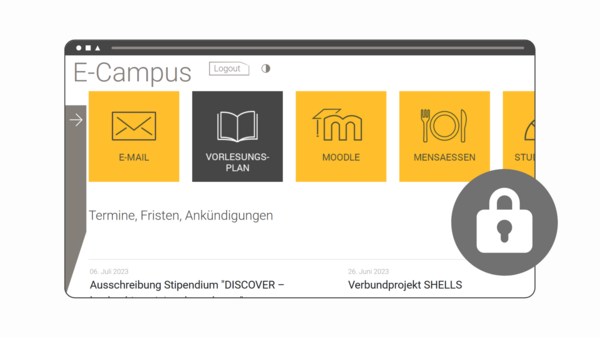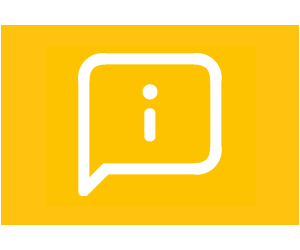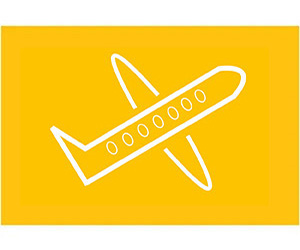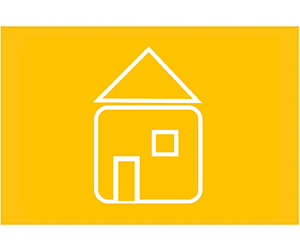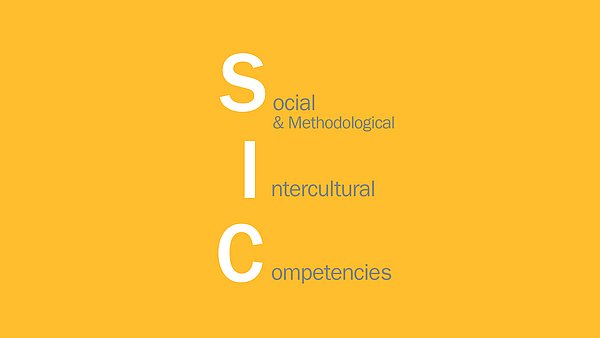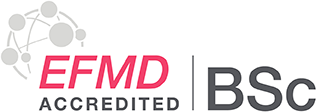Within the first two weeks of your arrival, you should register your address at the Residents’ Registration Office (Bürgercentrum) of the city you are residing in.
Appointments are limited. Please make sure to book one in advance.
Altes Rathaus – Bürgercentrum
Address: Östliche Karl-Friedrich-Straße 2-475175 Pforzheim
Phone: +49 (0) 7231 39 1111
E-mail: buergercentrum(at)stadt-pforzheim(dot)de
Requirements:
- Passport
- Visa (if required)
- Rental agreement stating address
You need to book an appointment online via this link „Wohnung anmelden (Zuzug von außerhalb Pforzheims)“, only available in German.
If you live in the surroundings of Pforzheim, you will have to register at the respective local Residents’ Registration Office.
If you do not have an accommodation yet, you will still have to register the address where you currently live (e.g. with your relatives or at a hotel).
Every time you move within Germany you have to notify the change of address to the residents’ registration office (Bürgerbüro). This also applies when moving within the same city or the same student dormitory.
Residence permit for students from EU countries:
International students from EU countries enjoy the freedom of movement and can enter Germany without a visa. Nevertheless, they have to register within two weeks at the local Residents’ Registration Office.
Residence permit for students from non-EU countries:
Students from non-EU countries must apply for a residence permit for academic purposes in the first few weeks after their arrival if a visa does not cover the whole period of stay. The residence permit is valid for a maximum of two years and may have to be renewed during the period of stay (e.g. when extending the stay).
Please note that you have to register your address before visiting the Foreigners’ Registration Office. You can contact them simply via Email. Find the respective contact person (depending on your family name):
Required documents when applying for a residence permit:
- Certificate of residence (issued by the Residents’ Registration Office)
- Letter of Acceptance or Letter of Enrollment (“Immatrikulationsbescheinigung”)
- Proof of financial resources, for example: proof of income and assets of the parents, security payment into a blocked account in Germany or scholarship contract (see chapter Bank account below).
- Proof of adequate health insurance
- Valid passport
- Recent passport photo
If you‘re a student coming to Germany from a non-EU country, you must open a German bank account. For students from EU countries, it‘s recommended but not mandatory.
The most common type of bank account for daily use in Germany is called a Girokonto. It allows you to transfer money online, withdraw cash from ATMs, pay with a card, and cover expenses like rent, health insurance, and student fees. Most banks offer free accounts for students.
At Pforzheim University, you’ll find a Sparkasse branch, and other banks are in the town center. Other options are the online banks like ING and N26 which are also popular and easy to use.
Requirements:
- Passport
- Proof of enrollment at Pforzheim University (acceptance letter)
- Initial Deposit
- Your tax ID number (not always necessary). You will receive this number only after your address registration at the Bürgercentrum. It might take up to 2 weeks.
In Germany, for using TV, radio and computer/internet, a broadcasting licence fee of 18.36 euros must be paid per residence. You can find more information here.
A room in a dormitory counts as an apartment even without a bathroom or kitchen. If the rooms are designed like a private apartment or rather communal residence, only one broadcasting licence fee has to be paid. If a roommate paid already, you do not have to pay again.
Mobile phones
In Germany, mobile phone service can be obtained through a contract, pay-as-you-go plan or with a prepaid SIM card for your existing GSM tri-band phone. It is important to research options carefully as some phones will not work with an overseas SIM card. It is also possible that your home mobile service provider may offer an international calling plan that will suffice for your needs.
If you obtain mobile phone service in Germany, please note that airtime minutes are charged only for out-going calls, but calls placed to mobile phones cost more for the caller.
Prepaid phones: The prices of phones vary, but they will be functional within 15 minutes of activation. Incoming calls can be received even when the card is not loaded. Prepaid cards are typically available in 15 euros, 25 euros and 50 increments.
Contract phones: They are less expensive, and the phone is often free; however, most contracts require a minimum sign-up of 24 months.
Many carriers charge a monthly fee of about 10 euros plus the cost of calls. Flat rate plans are now more widely available in Germany and usually start at around 40 euros per month (German bank account is required).
Internet & keeping in touch
Internet in dormitories is already included. In some cases you will need to get a router. If you live in a private apartment you can check the following providers for more information:
The university has Wifi in all its buildings. Instructions and downloads for the VPN software are available from the university’s website and the IT-guide. Your student ID-code is needed, so note that until you are registered, there could be a delay. The Internet provides a cheap and convenient way to communicate with contacts in Germany and at home. Internet phone service is often the least expensive way to call overseas, and e-mail and instant messaging are usually free. If you and your contacts do not already have accounts set up, it may be advisable to consider the services offered by companies such as WhatsApp, Signal, Threema, MSN, Viber, and others. You can also make use of less expensive pre-dial codes for discount carriers when making calls outside of Germany. Try a service such as Verivox to find the cheapest rates.
A foreign driver‘s license is only valid for six months from the time at which you register at your new address in Germany. After this time, the license is no longer valid and you are no longer permitted to drive (exception: EU driver‘s license).
Ask at the Bürgercentrum whether you need to convert your driver‘s license before the six-month deadline is up.
For further information please visit the Federal Ministry of Transport.
Introductory math course for Bachelor’s students (voluntary)
Prior to the start of the winter semester, usually in mid to late August, we offer an optional and free preparatory mathematics course for our Bachelor’s students in order to fill in possible gaps in their knowledge so that they can start their studies in business administration as well prepared as possible. For the summer semester, the preparatory course usually takes place in mid-February. You can find the current schedules on the university‘s homepage and in your e-mail inbox.
SIC program for Bachelor‘s students (mandatory)
The SIC program serves to promote social, methodological and intercultural competencies, also known as soft skills, which are indispensable in today's professional world. It includes initial key information sessions, training in communication and teamwork, a business simulation game, as well as an English placement test and a math orientation test.
SIC program for Master‘s students (paid or ECTS)
Master‘s students can participate in the SIC program as tutors. We offer you an excellent opportunity to gain experience and qualification in presentation training. The events take place before the start of the semester at the Business School Pforzheim as on-site seminars. The activity will either be rewarded through a student assistant contract or, as an alternative to being paid, credited in ECTS-credits and recognized with a meaningful certificate.
Get to know your fellow students, the university and the best locations in the city. Organized by the student initiative commeo e.V., the orientation phase (O-Phase) offers plenty of events in the first two to four weeks before the start of the semester – whether it's a meet & greet of the study programs, a university rally to explore the campus or our famous cocktail night to get to know each other in a relaxed atmosphere. Fun and new friendships that last throughout college and beyond are guaranteed. Check your email inbox, the commeo website or the commeo Instagram channel (@commeo_pf) for up-to-date information.
You will receive your personalized student ID card during the introductory events or when classes begin at the very latest. The small card is a real all-round talent that enables you to use a wide range of features related to campus life, for example as:
- student ID (e.g. discounts)
- a means for cashless payment in the canteen, cafeteria and at the printers
- library card for borrowing books
- student ticket for public transportation within the VPE network
- proof of identity (e.g. for exams)
- door opener (main entrances and computer rooms)
- as a means to use the washing machines in the student dormitories
Before use, the ID card must be activated at the university's own printers. To do this, place the card on the designated login area and follow the instructions.
The student ID card must be re-validated each semester as part of the re-registration process. This is done at one of the two terminals in the glassed-in rooms on the first floor of the W1 building. There you can also reload funds for printing.
To recharge your account for cashless payments in the canteen or cafeteria, use the machines in the entrance area of the canteen building or in the W1 building (by the coffee machine). After the meal is served, your student ID card will be scanned at the cashier for debiting.
Using the Autoload function, your student ID card will be automatically refilled at the Mensa/Cafeteria cash registers when your balance is low. Autoload also gives you an overview of your spending. You can find more information at the Studierendenwerk.
You can log into your personal e-mail account online at webmail.hs-pforzheim.de or by using an e-mail client.
- Login name: fh\yourusername
- Password: your login password
All official e-mails of the university are sent to this account, e.g. e-mails of the study program, the administration office, the examination office or reminders of the library. It is therefore important (!) that you check your e-mails and empty the mailbox regularly! If your mailbox is full, you will not be able to receive any more e-mails and may miss crucial information for your further study schedule.
The E-Campus is a protected area within our website where you can find a lot of helpful information about your studies. To access the E-Campus, click on "Login" at the top of the page and log in with your access data, sent to your private e-mail account after enrollment. From there you can access the lecture schedule, the course and learning management system Moodle, the cafeteria schedule and the Studi-Cockpit quickly.
Visit the "IT Service Desk" to find out how to connect to the university network via a VPN installation (which you can use to access the digital library collection, among other things) or how to access internal systems from home. In the associated download area for students, all instructions for IT applications are available in PDF format (e.g. WLAN access at the university). In addition, you will find news, events, information about dates and other useful information gathered on the E-Campus:
Under "Studies", e.g.:
- Links that will help you organize your studies
- Information about counseling centers
- Download areas
Under "Services", e.g:
- Direct link to our career platform JOBS&MORE
- Registration forms and applications
- Information on IT (see above)
Under "Upgrade" e.g.:
- Links to certificates
- Info about the foundation
- Links to AStA and student initiatives (parties, volunteering, sports, etc.)
Under "Business PF" e.g:
- Syllabi and module handbooks
- Learning and working areas on campus
- Digital tools like Alfaview and MS Teams
